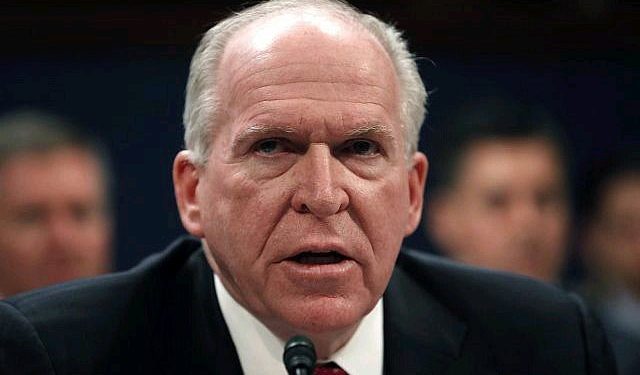Former CIA Director John Brennan, in a recent interview on MSNBC’s “Deadline: White House,” disclosed a shocking revelation that has sparked widespread controversy.
Brennan, who has been a central figure in discussions surrounding intelligence and national security, unveiled what he described as the intelligence community’s plan to withhold crucial information from former President Donald Trump during his security briefings this summer.
The announcement comes amid ongoing debates about Trump’s access to classified intelligence following his securing of the GOP nomination for the upcoming presidential election.
Brennan’s comments shed light on the complex relationship between the intelligence community and political figures, raising questions about the boundaries of information sharing and the potential implications for national security.
During the interview, Brennan expressed his concerns about Trump’s history with handling classified information, referring to the former president’s indictment for mishandling such materials.
Despite this, Brennan acknowledged the tradition of providing classified intelligence briefings to presidential candidates by the sitting president.
However, he emphasized the need for caution in this process, particularly given Trump’s controversial track record.
According to a report by Raw Story on Friday, March 8, 2024, Brennan suggested that while Trump would receive intelligence briefings, they would be carefully curated to avoid divulging sensitive sources and methods.
He speculated that the briefings would focus on analysis rather than detailed operational information, aiming to minimize the risk of misuse by Trump.
Brennan’s comments reflected a delicate balance between transparency and security, highlighting the challenges faced by intelligence agencies in navigating political dynamics.
The former CIA director’s remarks drew attention to the broader context of Trump’s interactions with classified information.
Brennan hinted at concerns about potential misuse or mishandling of sensitive intelligence, echoing fears that have persisted since Trump’s time in office.
The decision to restrict certain information from Trump reflects a broader debate within the intelligence community about safeguarding national security interests while respecting democratic norms.
Critics of the plan argue that withholding information from a former president sets a dangerous precedent and undermines the principle of accountability.
They contend that regardless of past controversies, Trump is entitled to access the same intelligence briefings as other presidential candidates.
By selectively limiting the information provided to Trump, the intelligence community risks politicizing the briefing process and eroding public trust in its impartiality.
Proponents of the plan, however, argue that it is a necessary precaution given Trump’s history of disregarding established norms and protocols.
They point to instances where Trump’s handling of classified information raised serious concerns about potential security risks.
By exercising caution in sharing sensitive intelligence with Trump, the intelligence community aims to protect vital national security interests and uphold its duty to safeguard classified information.
The revelation by John Brennan has reignited debates about the role of the intelligence community in shaping national security policy and its relationship with political leaders.
As Trump prepares for a potential return to the political arena, the decision to limit his access to classified intelligence underscores the ongoing tensions between security imperatives and democratic principles.
The implications of this decision extend far beyond partisan politics, raising fundamental questions about the balance of power and accountability in a democratic society.






